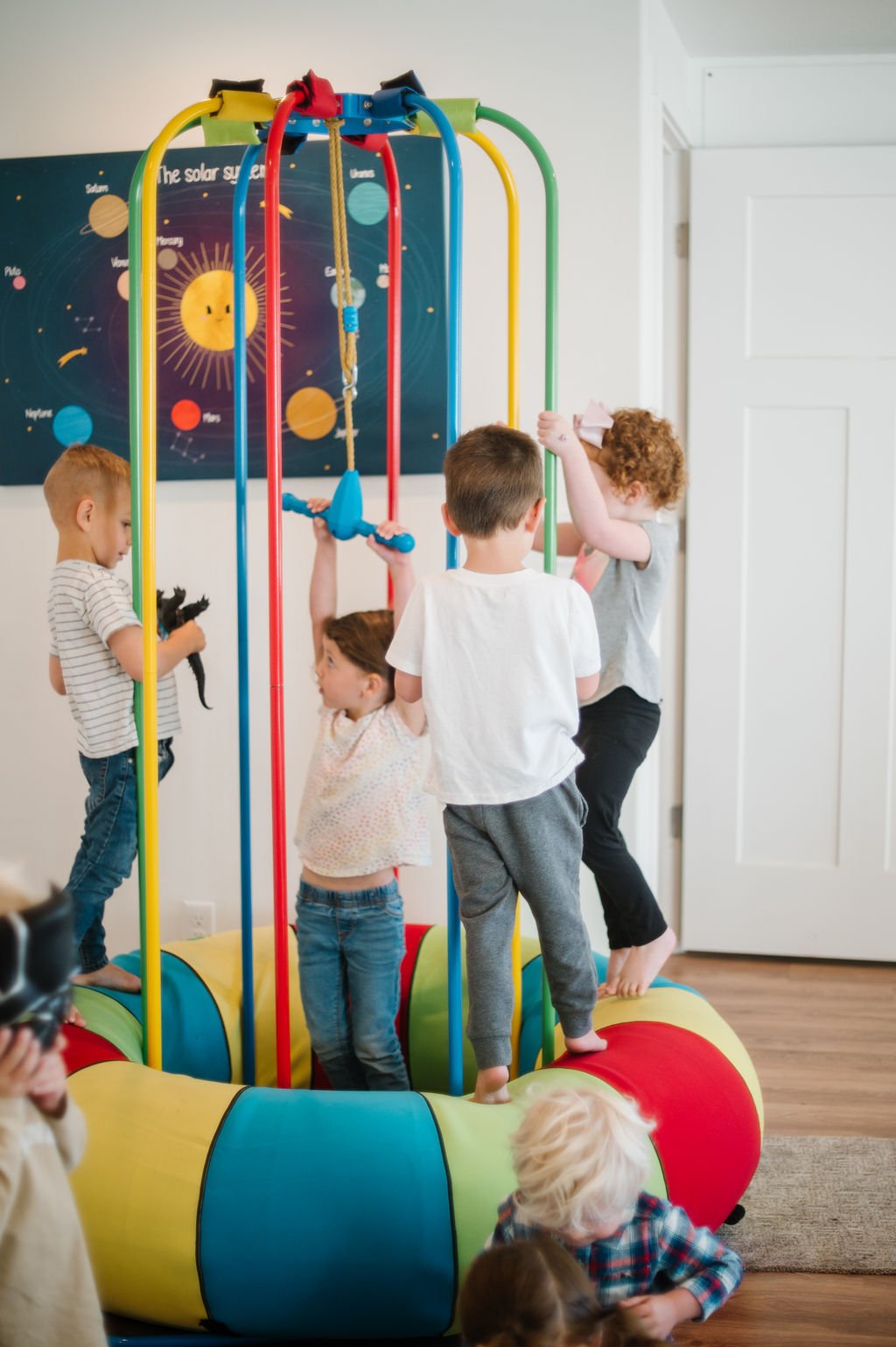What Is Play Based Learning?
As a parent, you may have heard the term “play based learning” when it comes to early childhood education, and wondered what exactly that means. At its core, play based learning is exactly what it sounds like: learning through play. There is so much research that shows that play based learning is not only effective, but also the best way for little brains to learn new information. Play based learning is a great way to teach cognitive skills, emotional maturity, academics, and social skills in the classroom. Let’s break down each area a little more to show how we used play based learning in each of these areas!
Cognitive Skills
Preschooler are working on developing cognitive skills such as understanding, communicating, remembering, and thinking about what might happen next. Preschoolers are so naturally curious and want to know how things work, and they way they learn this is through play. Playing make-believe in its variety of forms is such a great way to practice these skills. In the classroom, having a rich dramatic play center where children can go to make-believe is one way teachers encourage children to learn cognitive skills through play.
Emotional Maturity
Playing with peers is one way to very quickly learn emotional skills that will benefit a child far into the future. While playing with peers children learn how to recognize and express their own emotions, recognize those emotions in others, learn self-control and anger management strategies, and form healthy friendships. Playing together with children their own age allows children to develop these skills naturally, especially with the support of a parent or teacher to help guide them.
Academics
We all instinctively know that children learn best through first-hand experiences, so why not use that to everyone’s advantage in the classroom? In play based learning, everything we do is hands on. We give our students a chance to engage with what they’re learning in a variety of ways and access various learning styles. We use music, dance, manipulatives, and art to teach academic concepts. We are learning literacy and phonemic awareness concepts, math, science, and social studies, but we are accessing it all through engaging and hands on activities.
Social Skills
Playing provides a safe place to try out new social skills! Every preschooler needs practice sharing, taking turns, following directions, and respecting personal space. Playing in the classroom is an awesome opportunity for parents and teachers to model these skills, and for children to practice them in a risk-free environment. Again, this is where teacher-guided play can really come in and provide support in learning how to handle tricky situations and learn and important social skills.
At The Preschool Place, we LOVE play based learning. We know that play provides a safe place to try out new knowledge and skills and develops a positive attitude towards school and learning in general. We see first hand how effective play based learning is in teaching children not only academics, but also social skills, communication skills, and cognitive skills that will serve as a wonderful foundation for the rest of their lives.








Download our Feed The Shark Math Addition game for your Ocean Preschool unit!